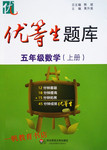
 优等生题库系列答案
优等生题库系列答案 53天天练系列答案
53天天练系列答案科目:高中英语 来源:安徽省模拟题 题型:阅读理解
|
任务型读写。 | ||||||||||
| In a memory-based competition between you and a chimp(猩猩); who do you think would win? If you put yourself on top, you might want to guess again. In a test that challenged participants to remember numbers, a young chimp performed better than Japanese college students. Here's how the test worked. At Kyoto University in Japan, human students and chimpanzee participants sat in front of a computer. Five numbers, ranging from 1 to 9, were combined with one another and then, they appeared at random places on the screen. The numbers stayed on the screen for less than a second. In the first test, for example, participants saw the numbers for 650 milliseconds(about two-thirds of a second). Then, each number disappeared and they saw a white square instead. Participants had to touch the squares in numerical order, based on the numbers that had been there a moment before. In this test, the students touched the boxes in the correct order about 80 percent of the time. A young chimp named Ayumu performed equally well. During a harder test, participants were only able to see the numbers for 210 milliseconds. This time, students only succeeded in putting the boxes in the correct order about 40 percent of the time. But Ayumu still could select the boxes in the fight order nearly 80 percent of the time. Some people have what's called a "photographic memory," which allows them to remember a surprising number of details after just a quick glimpse of something. Ayumu's memory might work in a similar way says lead researcher Tetsuro Matsuzawa. The chimp's young age might have something to do with his impressive performance, too. In previous tests, the Japanese researchers found that young chimps performed better than their mothers. The scientists are interested to see whether Ayumu loses his strong memory as he grows older. They already know that young children sometimes have sharp memories when offered something photographical, but they lose this ability over time.
|
查看答案和解析>>
科目:高中英语 来源:广东省模拟题 题型:阅读理解
查看答案和解析>>
科目:高中英语 来源:模拟题 题型:阅读理解
查看答案和解析>>
科目:高中英语 来源:同步题 题型:阅读理解
查看答案和解析>>
科目:高中英语 来源:山西省模拟题 题型:阅读理解
查看答案和解析>>
科目:高中英语 来源:同步题 题型:阅读理解
Most scientists agreed that cloning an entire human being-besides morally
questionable-was filled with technical problems. After all, research into animal cloning
has already shown that there are hundreds of failures, includingmanybadlydeformed
(畸形的)creatures that were usually miscarried.
Now comes word that it might be easier to clone humans than was previously
believed. People have a genetic quirk(怪癖) that might prevent some of the
developmental deformities associated with animal cloning. One gene, called IGF2R,
is normally imprinted in sheep, cows and mice but not in humans. Human clones would
always inherit non-imprinted IGF2R genes, so there would be no chance of a mix-up
and, their growth would be normal. But what of the other 49 0r so imprinted genes
(遗传基因 ) ?No one knows what troublethey might cause. So the fact humans have
one less imprinted gene than mice, sheep or cows means that human
cloningmightbemarginally (轻微地 ,很少地 ) easier , but not necessarily safer.
查看答案和解析>>
科目:高中英语 来源:同步题 题型:阅读理解
查看答案和解析>>
科目:高中英语 来源:期末题 题型:阅读理解
查看答案和解析>>
湖北省互联网违法和不良信息举报平台 | 网上有害信息举报专区 | 电信诈骗举报专区 | 涉历史虚无主义有害信息举报专区 | 涉企侵权举报专区
违法和不良信息举报电话:027-86699610 举报邮箱:58377363@163.com